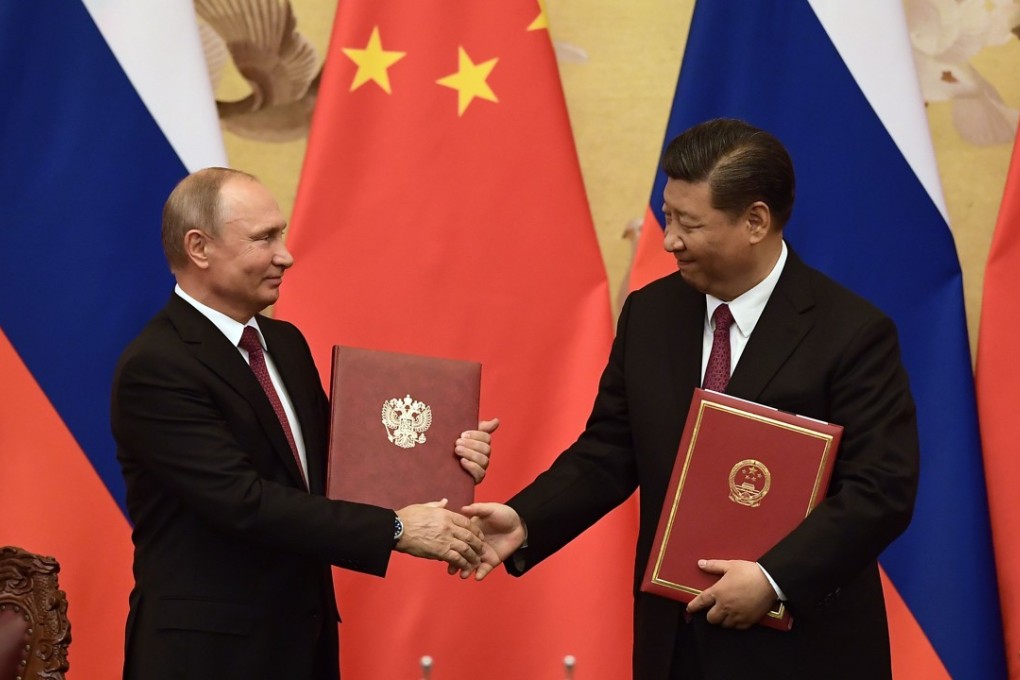Xi Jinping, Vladimir Putin hail ‘all-time high’ in ties, sign US$3 billion of nuclear deals
Leaders also agree on need for peace on Korean peninsula and vow to make ‘all possible efforts’ to preserve 2015 Iranian deal

China and Russia pledged to support each other on key global issues during a summit in Beijing on Friday, as the two sides hailed an “all-time high” in bilateral ties amid strained relations with the US.
The two countries also signed a raft of deals, including for nuclear cooperation projects totalling 20 billion yuan (US$3.13 billion) and a US$1 billion industrial investment fund.
Chinese President Xi Jinping met his Russian counterpart Vladimir Putin ahead of next week’s US-North Korea summit and after the United States withdrew from the Iranian nuclear deal.
“President Putin and I both think that the China-Russia comprehensive strategic partnership is mature, firm and stable,” Xi told reporters after their meeting. “It is the highest-level, most profound and strategically most significant relationship between major countries in the world.”
Xi was also quoted by state news agency Xinhua as saying: “No matter how international situations change, China and Russia always firmly support each other in defending their respective core interests”.
Putin said that Russia would work with China on the North Korean nuclear issue, ahead of the highly anticipated meeting on Tuesday between US President Donald Trump and North Korean leader Kim Jong-un in Singapore.
Russia and China “are interested in establishing peace and stability on the Korean peninsula”, Putin said in a joint press briefing with Xi after their talks.